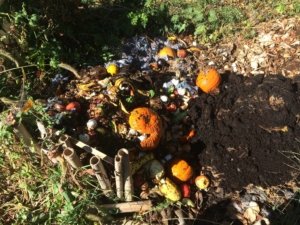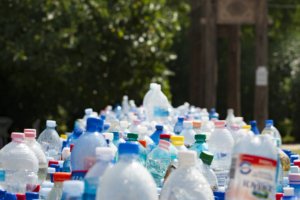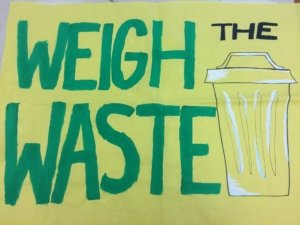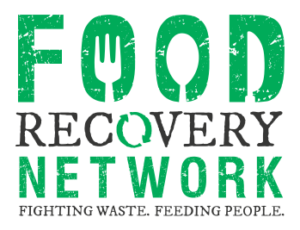Monitoring waste is crucial to maintaining a sustainable campus. Composting and recycling are just a few of the ways the Office of Sustainability is promoting proper waste disposal campus-wide.

Composting
Compost is organic matter that can be used to fertilize soil. At St. Mary’s College of Maryland, our composting program includes a variety of food scraps and waste that would otherwise be thrown in the trash.
White compost buckets are located in the community kitchens of Lewis Quad, Waring Commons, and traditional dormitories. Furthermore, each townhouse unit on the Greens and Crescents has its own composting bin.
Each week, sustainability staff and volunteers collect the compost and take it to the Campus Farm, where it is tilled and processed. The composting process takes 6-8 months, and all of the compost is used as nutrient-rich soil for the farm.
New this semester: compost is now being collected from the Great Room! Be sure to sort your food properly to prevent contamination. For easy reference, download our Quick Guide to Composting!
Items that can be composted:
- Fruit and vegetable scraps
- Egg shells
- Coffee grounds and filters
- Tea bags
- Plain bread and cooked pasta
- Peanut Shells
- Corn cobs and husks
- Tofu
- Drier lint
- Untreated hair
- Cereal
- Nail clippings
- Wilted flower arrangements
- Jack O’Lanterns
- Used matches
- Leaves and hay
- Wood chips and twigs
Items that can’t be composted:
- Meat
- Dairy
- Fish
- Oils
- Sauces
- Pet waste (bacteria)
- Trash and recycling
- Heavily colored paper
- Plywood
- Highly processed foods
- Biodegradable cups from the Great Room
- Cardboard
To volunteer for the composting program, email sustainability@smcm.edu.

Recycling
Single-Stream Recycling Bins
St. Mary’s College of Maryland utilizes single-stream recycling. This means that most recyclable materials can be thrown into a single recycling container. They do not need to be sorted.
Blue recycling bins are located in all major campus buildings, in dormitories, and in residential common areas. Recycling dumpsters are also located outside of residential areas.
Electronic Recycling Bins
In addition to single-stream recycling, St. Mary’s College of Maryland offers a recycling program for electronics. Containers for electronic recycling are located at the Glendening Help Desk, at the entrance to the library, and in various academic buildings around campus. Electronics accepted include:
- Printer & toner cartridges
- Batteries
- Cell phones
- Laptops
- Tablets
- Computers / Monitors

Weigh the Waste
In an effort to reduce food waste at St. Mary’s College of Maryland, the Office of Sustainability oversees a weekly “Weigh the Waste” program in the Great Room.
During one hour of lunch, sustainability staff collect all the food waste produced in the Great Room. At the conclusion of the hour, staff weigh the amount of waste produced during the course of the hour.
Weigh the Waste hopes to encourage students to think more mindfully about how much food they waste. By making more conscious decisions about portion sizes as well as by sorting their waste for compost, students can improve sustainable eating practices at St. Mary’s College of Maryland.
For more information about Weigh the Waste, contact one of our talented Sustainability Interns.

The Food Recovery Network
The Environmental Protection Agency (EPA) lists “feeding hungry people” as the second most preferable way to reduce food waste, per the Food Recovery Hierarchy. St. Mary’s College of Maryland therefore commits itself to outsourcing surplus food from the Great Room to local hunger-fighting agencies.
The St. Mary’s College of Maryland chapter of the Food Recovery Network recovers perishable food that would otherwise go to waste. Volunteers pick up leftover food from the Great Room and take it to local soup kitchens where it is used to feed people in need.
Through its partnership with the Food Recovery Network, St. Mary’s College of Maryland commits itself to promoting sustainable eating practices in a way that also benefits our greater community.
